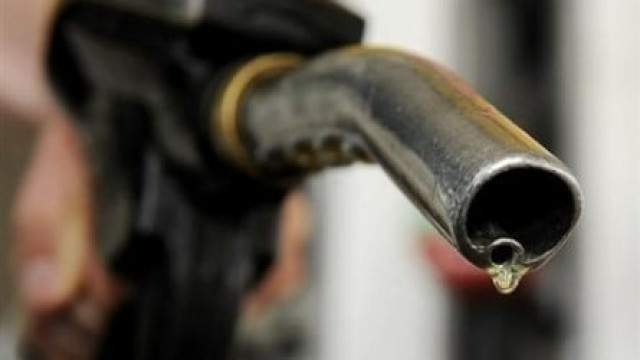Oil prices may fall 6% in June: OGRA
Decline based on the drop in global oil prices.

In the face of declining global oil prices, the Oil & Gas Regulatory Authority (Ogra) may recommend up to a 6% reduction in domestic oil prices for the month of June.
Officials told The Express Tribune that the government may reduce oil prices next month, though the decline may not be exactly in line with international oil price movements given the depreciation in the value of the rupee over that period.
According to the government’s analysis, global oil prices declined by between 1.5% and 6% for various subcategories of fuel over the past month, but the rupee also lost approximately 0.7% of its value against the US dollar, the currency in which nearly all international oil contracts are denominated.
The move to reduce oil prices may help dent the impression amongst large sections of the public that the government only increases the domestic cost of fuel.
Industry analysts argue that as global oil prices rose over the past several months due to unrest across the Middle East, many consumers of hydrocarbons cut back on their usage, reducing overall demand and thus causing a downward push on international oil prices.
If the price decline is adopted according to Ogra’s current assumptions (which are subject to changing circumstances), domestic oil prices may decline by up to 6%. Petroleum prices may decline by Rs1.5 per litre, high speed diesel by Rs2 per litre, and kerosene and light diesel by around Rs6 per litre.
A significant proportion of most domestic fuel prices are taxes imposed under the petroleum levy, one of the government’s biggest sources of revenue. The exceptions are kerosene and light diesel, which are exempt from taxation.
The government projects that it will be able to collect about Rs110 billion in petroleum taxes during the fiscal year ending June 30, 2012, an amount that is exactly equal to the target that had been set for the outgoing fiscal year.
However, the government has collected only Rs60 billion in fuel taxes this year, since it was forced on no fewer than three occasions to reduce oil taxes to accommodate rising international oil prices. This kept domestic prices marginally more stable but reduced government revenues and increased the budget deficit.
Government officials expect to have somewhat more success in meeting their target for petroleum tax collection during the upcoming fiscal year.
“The reduction in global oil prices may provide space to the government to enhance the petroleum tax rate and thus achieve the collection target for 2012,” said one official familiar with the matter.
Increasing petrol prices has been a highly unpopular move that often results in a backlash against the government by the opposition and even its own coalition allies. On May 1, the government increased domestic prices by between 1.8% and 11.8% to account for rising global prices.
Published in The Express Tribune, May 27th, 2011.



















COMMENTS
Comments are moderated and generally will be posted if they are on-topic and not abusive.
For more information, please see our Comments FAQ